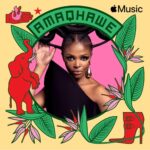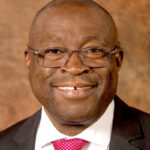The Department of Basic Education has noted with disappointment the continued media reports about plans to introduce unisex toilets in schools, saying “it is not entirely true that the Department is proposing unisex toilets.”
In a statement on Wednesday, the department said the media reports are based mainly on an initial draft discussion document, which has since evolved following consultation before it is published for public comment.
“This is a matter blown out of proportion, which may have arisen from the consultations that are currently underway on the Guidelines for the Socio-educational Inclusion of Diverse Sexual Orientation, Gender Identity, Expression and Sex Characteristics (SOGIESC) in Schools.
“The narrow focus on unisex toilets is unfortunate, as it misses the bigger debate on the elimination of gender discrimination in all spheres of society and specifically creating a socially conducive and welcoming environment in schools,” the department said.
The department explained that the document used in the media reports is actually under consultation, it asks pertinent questions about inclusion of sexually and gender diverse children pertaining to school admission, curriculum, co-curricular programmes, uniform and facilities.
“It is not entirely true that the department is proposing unisex toilets. Instead, the department is probing the relevant response mechanisms to ensure the constitutional obligation for socio-educational inclusion of sexual minorities, and avoid the currently overwhelming litigation,” the department said.
What gave rise to the draft guidelines?
a) It is the violation of human rights and discrimination perpetrated against children of diverse sexual and gender identities, whether intentional or unintentional.
b) The litigation that provincial education departments had to deal with relating to this matter.
c) School governance issues faced by School Governing Bodies on these matters.
“It was clear that although we have an unambiguous Constitution and inclusive education policies and legislation, schools needed an instrument that would help them avoid violation of children’s rights,” the department said, adding that it needs to ensure children of diverse sexual and gender identities enjoy the education system like any other child.
The document provides some international and regional frameworks that create an enabling environment for United Nations, African Union, ESA and Southern African Development Community Member States to carry out diversity and inclusion work in education and training.
Constitutional and education policy mandates that protect children of diverse sexual and gender identities are also stipulated.
“The bigger part of the document is an exploration of how the education system supports schools to create a safe and caring environment so that all children may experience a good living and learning experience without discrimination or prejudice, highlighting SOGIESC in particular.
“The petitions conducted by some political parties are premature because a formal public engagement process will take place once the current phase of consultations are concluded,” the department said.
The department has appealed for calm as the matter is still being processed in terms of the normal protocols.
The guidelines are still undergoing district consultations as recommended by the Council of Education Ministers and will be published in 2023.












